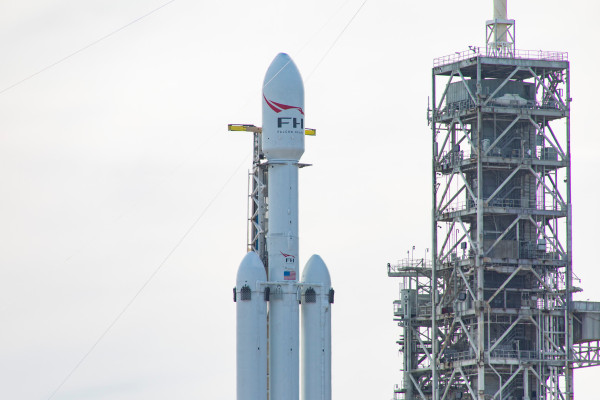
Planning a mars mission, a global telecommunications network for inexpensive internet service, and creating an interplanetary hedge against world war three isn’t cheap, so it’s no wonder that SpaceX is closing on $500 million in new cash through a financing round led by Fidelity, according to multiple sources with knowledge of the round.
Responding to clamoring demand from investors and their own desires to cash out (at least a little bit) existing shareholders in the company are creating several special purpose vehicles to sell shares on the secondary market — with our sources saying those secondary offerings could total an additional $500 million.
Shares for the company are selling for somewhere between $160 and $170, according to our sources.
One big buyer of SpaceX shares is reportedly SpaceX chief executive and founder Elon Musk, who multiple sources have said is investing $100 million to buy up shares.
News of the initial fundraising effort was first reported by CNBC, which pegged the valuation of Musk’s space exploration venture at roughly $21.5 billion.
That’s a huge jump from fifteen years ago, when the company’s shares were issued at around 5 cents and Elon Musk said it was struggling to get cash in the door, basically living week-to-week.
Secondary offerings are controlled sales of existing shares held by early employees and investors who are looking to cash out of the company. It’s the only way to realize some value of shares before an initial public offering.
Now, on the heels of a huge award from the US Air Force, SpaceX will have $290 million in contracts coming in, covering transportation for three global positioning system satellites into orbit by the end of 2020.
Those contracts are in addition to private agreements that SpaceX has cut with a growing number of commercial space companies, whose activity has been boosted by significant cost reductions at every level of the supply chain.
SpaceX and companies like Blue Origin, Virgin Orbit, Rocket Lab, Relativity Space and SpinLaunch are all vying to bring down the cost of launching payloads into space. And on the other side of the equation, satellite companies like Spire, Astranis, Akash Systems, OneWeb, Planet and a host of others are reducing costs for building equipment with monitoring and communications technologies for terrestrial applications from space.
Entrepreneurs like Musk have their eyes on other prizes as well. SpaceX will soon begin testing the capabilities of its rockets that will be destined for Mars. The space race in the U.S. has also caught the attention of international entrepreneurs who are placing bets as well. Last year, in mid-December, the Japanese company ispace announced a $90 million round of funding for the development of a lunar lander and two lunar missions by 2020.
At SpaceX, plans for a robust launch schedule are also in place, with the company’s President, Gwynne Shotwell, saying that the company was planning launch mission every two-to-three weeks.
Some of those missions will be deploying SpaceX’s planned network of satellites intended to provide connectivity through high speed internet connections to underserved populations around the world– while others will be tests for Musk’s planned Martian journeys.
SpaceX did not respond to a request for comment.


